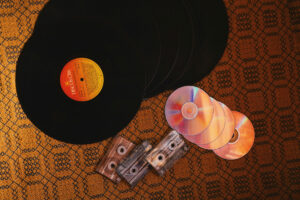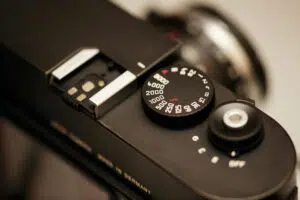Music is one of those beautiful, universal things that connects people, stirs up memories, and sets the vibe for every occasion. And while most of us stream our favorite tracks these days, there’s something special about physical music formats. Two of the most iconic formats that continue to thrive, even in 2025, are CDs (Compact Discs) and Vinyl Records.
Both have their loyal followers and offer totally different experiences — whether it’s the crystal-clear sound of a CD or the warm, nostalgic crackle of vinyl. So if you’re thinking about building your collection, or just curious about the differences, let’s dive deep into this ultimate showdown: CD vs Vinyl Records.
What Are CDs, Really?

Let’s start with the Compact Disc. These shiny little discs showed up in the early 1980s and quickly changed the music game. Why? They were smaller, lighter, and sounded better than cassette tapes and even vinyl records at the time.
In the CD vs vinyl records debate, CDs win for convenience. They use digital tech to store music, read by lasers inside your player. This gives you clean, consistent audio with almost no surface noise.
If you grew up in the ’90s or early 2000s, you probably had stacks of CDs in your car or room. They’re easy to carry, hard to damage, and come with extras like track names and album info. You can skip, repeat, or shuffle tracks without touching the disc.
CDs sound crisp, controlled, and clear—perfect for listeners who want precision over texture.
What’s the Deal With Vinyl Records?

Now let’s move onto the real OG: the Vinyl Record. Vinyl dates back to the early 20th century, and though digital music has become the dominant sound of the 21st century, it’s never quite gone away — and, in fact, it’s more popular now than it’s been for decades.
Vinyl records capture music in analog format. In this format, sound waves are physically molded into small grooves on the surface of the record. As you drop the needle on the record, it moves through these grooves and picks up vibrations, translated into music.
The act of putting on a vinyl record is an experience unto itself. Extricating it from the sleeve, setting it on the turntable, lowering the needle gently — it compels you to slow down, concentrate and truly hear. There’s something about the warm, rich, natural sound of vinyl that digital formats can never match. Plus, those big album covers and artwork are literally art you can hold.
In the CD vs vinyl records conversation, vinyl wins on vibe. Want to give it a try? Here’s a simple turntable setup guide to help you start spinning.
Quickfire Comparison: CD vs Vinyl Records
Here’s a no-nonsense CD vs Vinyl Records breakdown of how these two stack up against each other:
CDs deliver clear, digital sound, while vinyl offers a warm, rich analog tone. CDs are portable and durable, making them ideal for travel or casual listening. Vinyl, on the other hand, is fragile and demands careful storage, but rewards you with beautiful packaging and a tactile, immersive listening experience. CDs are compact and affordable, whereas vinyl records tend to be larger, more collectible, and often more expensive. One lets you skip, shuffle, and repeat, while the other invites you to enjoy albums as complete, uninterrupted experiences.
Sound Quality: Which One Sounds Better?
This one is a tough one because it is so subjective. CDs offer digital perfection. What you hear is the very same material that’s been recorded and mastered in the studio. No pops, no crackles, no hiss. It’s also clean, consistent, and precise. Some audiophiles say it can make CDs sound a bit too clinical or sterile — too perfect, devoid of the warmth and soul of analog sound.
Vinyl records, in contrast, are warmer and fuller. The sound sounds less artificial, more organic and alive. You will receive slight imperfections — a pop here, a crackle there — but that is what the charm is. Part of the beauty of vinyl is the way it captures bass, midrange, and high frequencies in a fuller, richer sound. A lot of people say it feels more three-dimensional.
Durability & Storage
CDs win this round hands down. They’re small, light, and easy to store. You can stack them on shelves, toss them in your car, or carry them in a portable case. As long as you don’t scratch the playing surface too badly, they’ll last for years.
Vinyl records are delicate. They’re big, heavier, and prone to warping if exposed to heat or left standing upright without support. Dust and scratches can cause skips or pops. You’ll need a decent storage solution, like a crate or shelf, and handle them carefully by the edges. If you live somewhere hot and humid (hello Southeast Asia!), proper vinyl storage is a must. Need help protecting your records in a hot climate? Check out our tips on how to store vinyl records properly — especially useful if you’re living somewhere humid.
Artwork & Collectibility
When it comes to artwork and collector appeal, vinyl is the clear winner. Those big, 12-inch album covers are works of art in themselves. You get rich visuals, liner notes, posters, colored records, limited editions, and special pressings. Vinyl packaging feels like an event. Collectors love hunting down rare finds, first pressings, or colored vinyl versions.
CDs do have artwork, but it’s smaller — not quite as impactful. That said, certain CD box sets, digipaks, and Japanese pressings are highly collectible too. While they may lack the visual drama of vinyl, CDs still offer a tangible connection to your favorite albums.
The Listening Experience
This is where the two formats differ in dramatic ways. With CDs, you insert the disc, press play and that’s it. You can track skip, loop or shuffle the entire album. It is convenient, clean and speedy. Great for driving, exercising, or background music while you do something else. Want to get the most out of your setup? Learn about the best speakers for vinyl records to pair with your turntable.
Vinyl, however, is a ritual. You extract the record from its sleeve, carefully position it on the turntable, cue up the tonearm, drop the needle and get comfortable. No skipping around. You listen to Side A, turn it over, and listen to Side B. It makes you slow down and really engage with the music. So it’s immersive, it’s intentional, it’s special.
Price & Availability
For the longest time CDs cost more than vinyl. But in the world we live in today, CDs are less expensive and more readily available. There are plenty of them in second-hand shops, online marketplaces and garage sales. You can get a pile of ever-popular albums for the cost of one vinyl.
The revival of vinyl records has only compounded the higher cost. The new release on vinyl can easily be double or triple the price of the CD. Limited editions and colored variants can sell for hundreds of dollars. That said, if you’re in it for the collecting or listening experience, vinyl is worth the money.
Which One Should You Choose?
Here’s the naked truth about CD vs vinyl: There’s no right choice or wrong choice. It all comes down to what’s important to you.
If you want clean, clear sound and the ability to skip, repeat, and shuffle tracks, all in a portable and durable format, CDs are a great choice. They’re also a cost-effective method of amassing a music collection.
If you are looking for a warm, natural sound; love large album artwork and associated collectible editions; and find joy in the ritual of playing records, vinyl is for you. It is a format that feels nostalgic, personal and immersive.”
Many music lovers have both. They play CDs for the convenience and vinyl for those special listening occasions when they want to sit down, create a quiet listening space and immerse themselves in the music.
Infographic Concept: CD vs Vinyl Records

Final Thoughts
Even with Spotify, Apple Music, and YouTube everywhere, people still buy physical formats. CD vs vinyl records isn’t just a debate—it’s about having something you can hold, own, and love. It’s the feel, the artwork, the ritual. That’s what streaming just can’t replace.
Whether you’re team CD, team vinyl, or a bit of both, the point is—you’re still collecting, still listening, and still enjoying music your way.
So, what’s your pick? Vinyl purist? CD collector? Somewhere in between?
If you’re building a setup, check out how to set up a turntable system. Or if you’re still figuring things out, our beginner’s guide to turntable accessories breaks down everything you need—from slipmats to record clamps.






